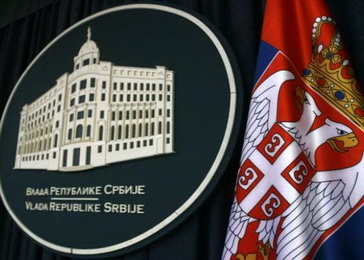 Initiated by Coordination Body for Gender Equality of the Government of the Republic of Serbia, Social Inclusion and Poverty Reduction Unit of the Government of the Republic of Serbia and Statistical Office of the Republic of Serbia, Serbia has become the first country outside the European Union which has introduced the EU Index of Gender Equality. The whole process of Index implementation was supported by the European Institute for Gender Equality which developed the Index in the EU. Also, representatives of all relevant public institutions, civil society organisations, as well as the professional and academic community were included in the process through the established Working Group of the Government of the Republic of Serbia.
Initiated by Coordination Body for Gender Equality of the Government of the Republic of Serbia, Social Inclusion and Poverty Reduction Unit of the Government of the Republic of Serbia and Statistical Office of the Republic of Serbia, Serbia has become the first country outside the European Union which has introduced the EU Index of Gender Equality. The whole process of Index implementation was supported by the European Institute for Gender Equality which developed the Index in the EU. Also, representatives of all relevant public institutions, civil society organisations, as well as the professional and academic community were included in the process through the established Working Group of the Government of the Republic of Serbia.
The Gender Equality Index represents the mechanism for measuring the gender equality through six domains: knowledge, work, money, health, time, power, and two satellite domains: violence and intersecting inequalities. Gender equality can be measured on a scale of 1, complete inequality, to 100, complete equality. According to the First Report on the Index of Gender Equality, the Gender Equality Index in the Republic of Serbia is 40.6%, while the index of the EU Member States is 52.9%. There is a significant progress in the field of gender equality in Serbia, especially in the domain of power distribution at the national level, but there is still a huge setback in achieving gender equality in relation to the EU, especially in the domain of work and money.
In that context, Gender Equality Index is a crucial instrument for future public policies in the field of gender equality and also important instrument for measuring the gender sensitivity of general public policies. Raising the public awareness of the gender issue is crucial for the development of democratic society and getting closer to the EU standards, and Gender Equality Index is one of the most important instruments for achieving that goal.
Click here to download the “2016 Gender Equality Index” Report
 Government of the Republic of Serbia
Government of the Republic of Serbia















 pdf [271 KB]
pdf [271 KB]
Leave a Comment